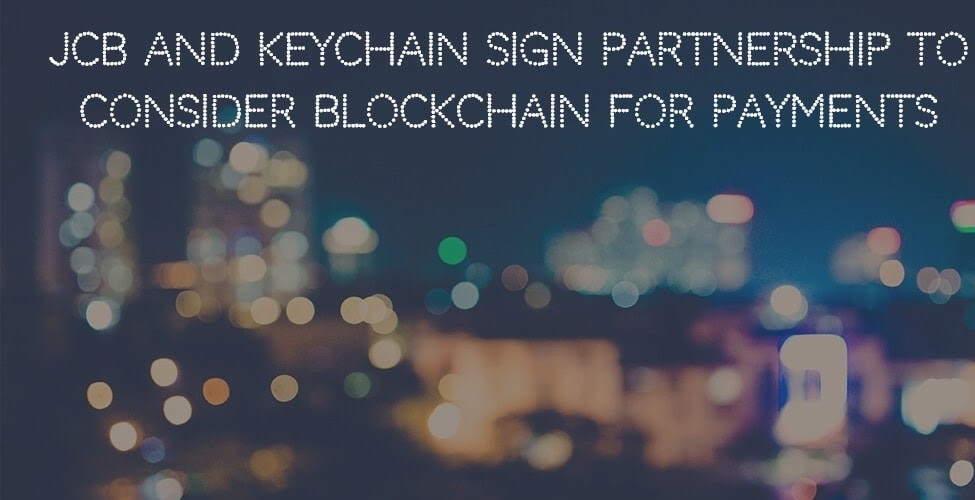
Japanese credit card scheme JCB is collaborating with Singapore’s Keychain to develop a a secure infrastructure for processing credit-based micropayments between IoT devices.
„The innovation promises to enable direct human-to-machine and machine-to-machine payments at scale without the confines of credit cards,” according to the press release.
As new networks, such as 5G, deploy and the use of Internet of Things (IoT) devices grow, so will the need for automated and machine-to-machine micropayments. Mobile payment apps enabled the common mobile user to pay with their phone, however the current payment infrastructure does not support tens of billions of IoT devices.
Use cases in point: electric vehicles automatically paying for charging, or a farmer receiving payment for produce to a mobile device while offline. Such an infrastructure needs to handle vast cybersecurity and operational risks related to identity fraud, hacking, privacy and denial of service.
JCB and Keychain have begun solving these challenges by implementing a new blockchain and distributed ledger-based payment infrastructure that mitigates the risks of IoT micropayments.
Micropayment Infrastructure
JCB and Keychain developed the solution based on digital identity, delegated transaction approval, and secure transaction archival.

1. Integrated digital identity
Each IoT device has a unique, blockchain-based, self-sovereign identity associated with customer identity. This establishes a necessary technical basis for behavior attribution and regulatory compliance.
2. Delegated transaction approval at the network’s edge
Using Keychain Core’s data provenance capability, the cost, operational risks, and financial risks of payment processing are pushed towards the edges of the network. This enables mitigating large-scale cybersecurity attacks with comparatively large-scale defenses.
Transaction approval is processed in real time by devices geographically closer to the location of the transaction. The result is a smoother, lower latency user experience and more scalable risk mitigation for the issuer.
3. Secure transaction record archival
Using identity-based data provenance and security techniques, the system ensures that data is securely relayed to the issuer for compliance and integrity checking. The records integrate into conventional settlement systems, leveraging the digital identity-user mappings.

The go-to-market plan consists of enhancing the technology, practical real-world pilots, production infrastructure build out during 2021, and go-live in 2022.
###
JCB is a major global payment brand and a leading credit card issuer and acquirer in Japan. JCB launched its card business in Japan in 1961 and began expanding worldwide in 1981. Its acceptance network includes about 35 million merchants in the world. JCB cards are now issued in more than 20 countries and territories with more than 140 million cardmembers.
Banking 4.0 – „how was the experience for you”
„To be honest I think that Sinaia, your conference, is much better then Davos.”
Many more interesting quotes in the video below: